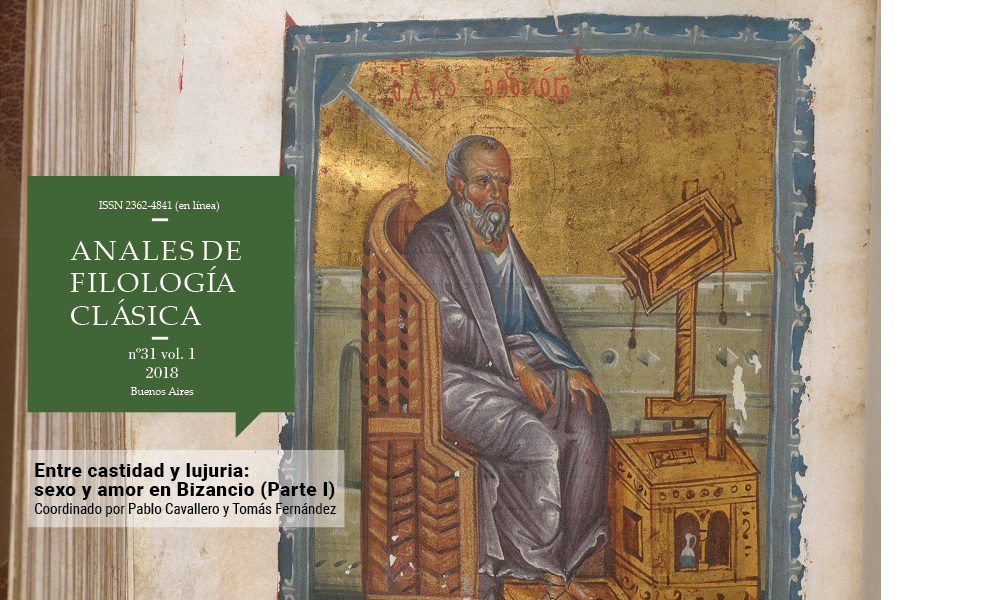Iamblichus in Stobaeus: doctrines on the soul transmitted by doxography
Abstract
Joannes Stobaeus, at the end of the fifth century, compiled the most extensive collection of philosophical literature by his times, especially referring to Neoplatonism, whith deep roots in the Alexandrian era and edifying purposes in the Byzantine age. The philosophical doctrines compiled by Stobaeus are full of ready-made phrases, γνῶμαι, judgments and moral recommendations, hence their influence on Byzantine and medieval florilegia. The main value of the anthology lies in the transmission of texts not recorded by another source. In fact, De Anima by Iamblichus only survives in the pages of the Eclogae by Joannes Stobaeus, who included it in his collection under the title Ἰαμβλίχου ἐκ τοῦ περὶ ψυχῆς (<Taken from> On the Soul by Iamblichus). The treatise On the soul does not appear in the canonical listings of the works by Iamblichus, in fact it is not in the TLG under the Chalcidencis’ authorship. I have observed the itineraries of the theories about the soul and its projection on the Byzantine world, in the German edition of Curtius Wachsmuth and Otto Hense (1884-1923), for the translation and commentary of the passages I checked the English version by John Finamore and John Dillon (2003) and the Italian one by Lucrezia Martone (2014).Downloads
Download data is not yet available.
Published
2018-02-10
How to Cite
Alesso, M. (2018). Iamblichus in Stobaeus: doctrines on the soul transmitted by doxography. Anales De Filología Clásica, 1(31), 7-14. https://doi.org/10.34096/afc.v1i31.6136
Section
Artículos
Los autores/as que publiquen en esta revista aceptan las siguientes condiciones:
- Los autores/as conservan los derechos de autor y ceden a la revista el derecho de la primera publicación, con el trabajo registrado con la licencia de Atribución-CompartirIgual 4.0 Internacional (CC-BY-SA 4.0) de Creative Commons, que permite el uso comercial de la obra y de las posibles obras derivadas, la distribución de las cuales se debe hacer con una licencia igual a la que regula la obra original.
- Los autores/as pueden realizar otros acuerdos contractuales independientes y adicionales para la distribución no exclusiva de la versión del artículo publicado en esta revista (p. ej., incluirlo en un repositorio institucional o publicarlo en un libro) siempre que indiquen claramente que el trabajo se publicó por primera vez en esta revista.
- Se permite y recomienda a los autores/as a publicar su trabajo en Internet (por ejemplo en páginas institucionales o personales) antes y durante el proceso de revisión y publicación, ya que puede conducir a intercambios productivos y a una mayor y más rápida difusión del trabajo publicado (vea The Effect of Open Access).
En ningún momento se cobrará monto alguno al autor por la publicación en esta revista.







